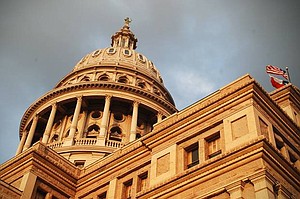8/4/2017

During the regular session, the Texas House passed a school finance plan - House Bill 21 in the regular session - which was also supported by the LSG. The legislation would have added desperately-needed funding to our public school system, boost per-student funding, increase the basic funding for almost all school districts, and more. HB 21(85(R)) was an important first step in school finance reform, however the Chairman of the Senate Education Committee refused to appoint conferees to negotiate with the House and so the bill died.
The Chairman of the House Committee on Public Education Dan Huberty re-filed HB 21(85(R)) as HB 21(85(1)) in the first called special session, which is almost identical to the same bill that passed the House during the regular session, "minus EDA and charter school funding," according to the Association of Texas Professional Educators.
The LSG support this legislation because, it improves our public schools. HB 21 allocates $1.8 billion into public schools, simplifies the complex and outdated formulas for allocating that money, and targets certain disadvantaged student groups for more funding. Without additional funding some rural schools will be at risk of closing. The Legislative Budget Board estimates about 96 percent of districts and 98 percent of students would see more money under the bill.
Here are some of the key provisions:
*The House plan adds an additional $1.8 billion for public education-funding that is greatly needed to reduce the chronic underfunding of our schools.
*HB 21 would boost per-student funding for nearly every public school in the state while also reducing the amount of money wealthier school districts are required to give to less wealthy school districts. Known as the Robin Hood plan, the practice has become a hot-button political issue as large districts like Houston have recently had to begin making payments.
*HB 21 would increase the basic funding for almost all school districts from $4,765 to $5,140 per student every year.
*HB 21 would increase the amount of money the state gives to schools for students with dyslexia and English language learners.
*HB 21 is estimated to lower payments that property-wealthy school districts make to the state to subsidize property-poor school districts by $163 million in 2018 and $192 million in 2019.
Disparity and inequity in this system force school districts to make sacrifices in various departments while struggling to keep up with the minimum education standards set by the state. Past funding cuts have caused districts to raise taxes or seek donations to keep extracurricular programs, extra school supplies, and other options available to students. This is why the Legislative Study Group supports HB 21 and other bills that will improve our public schools.
